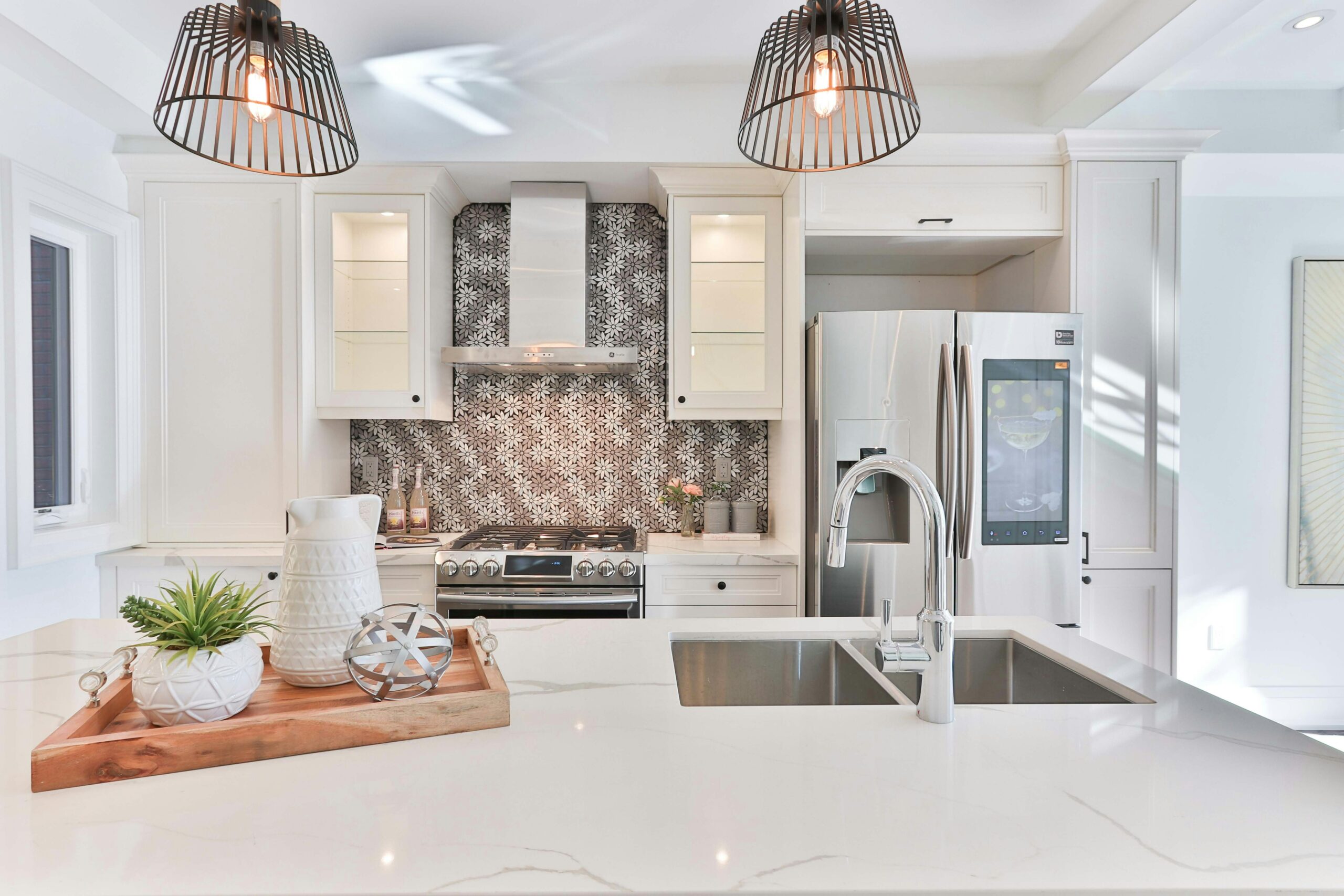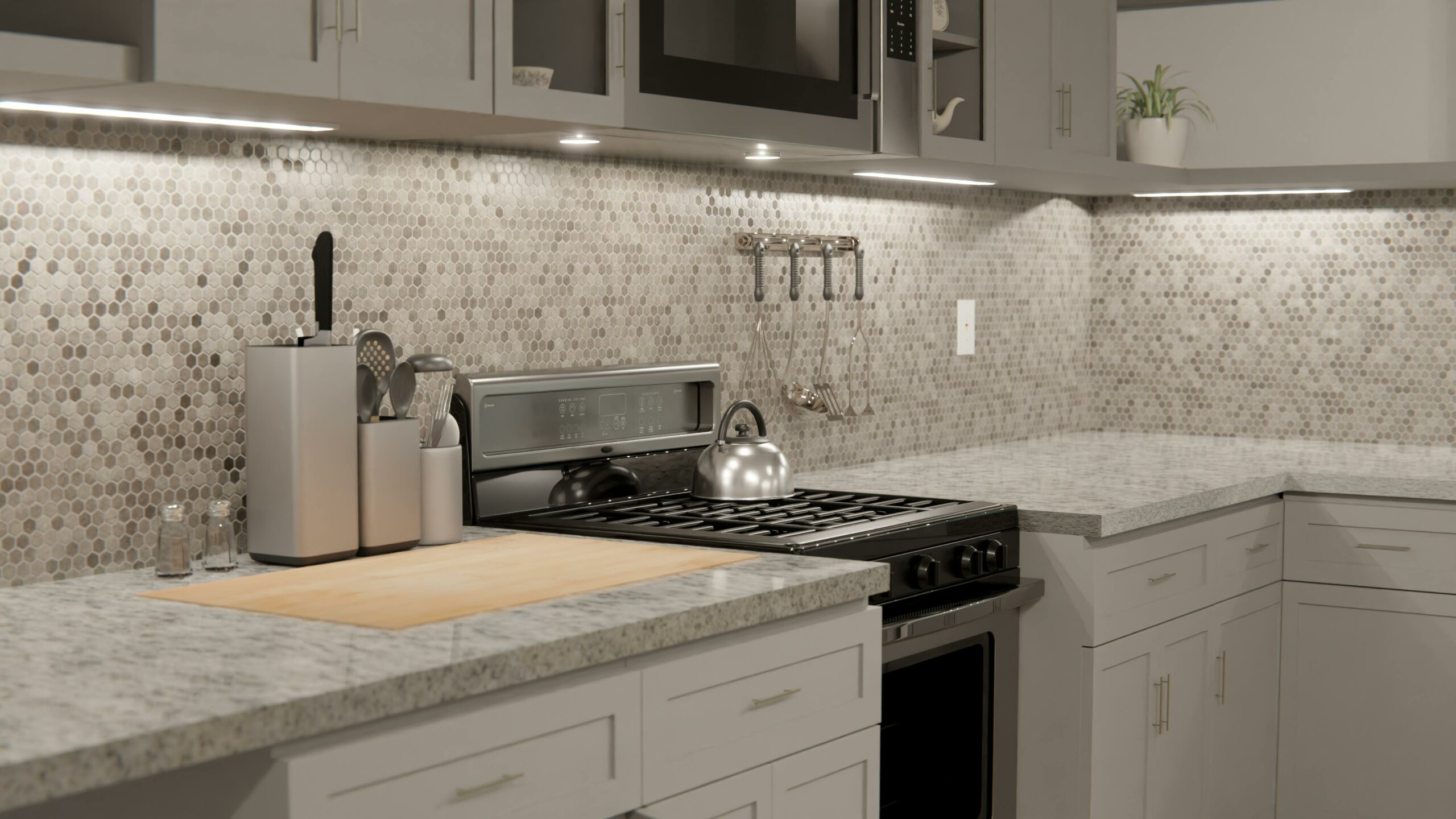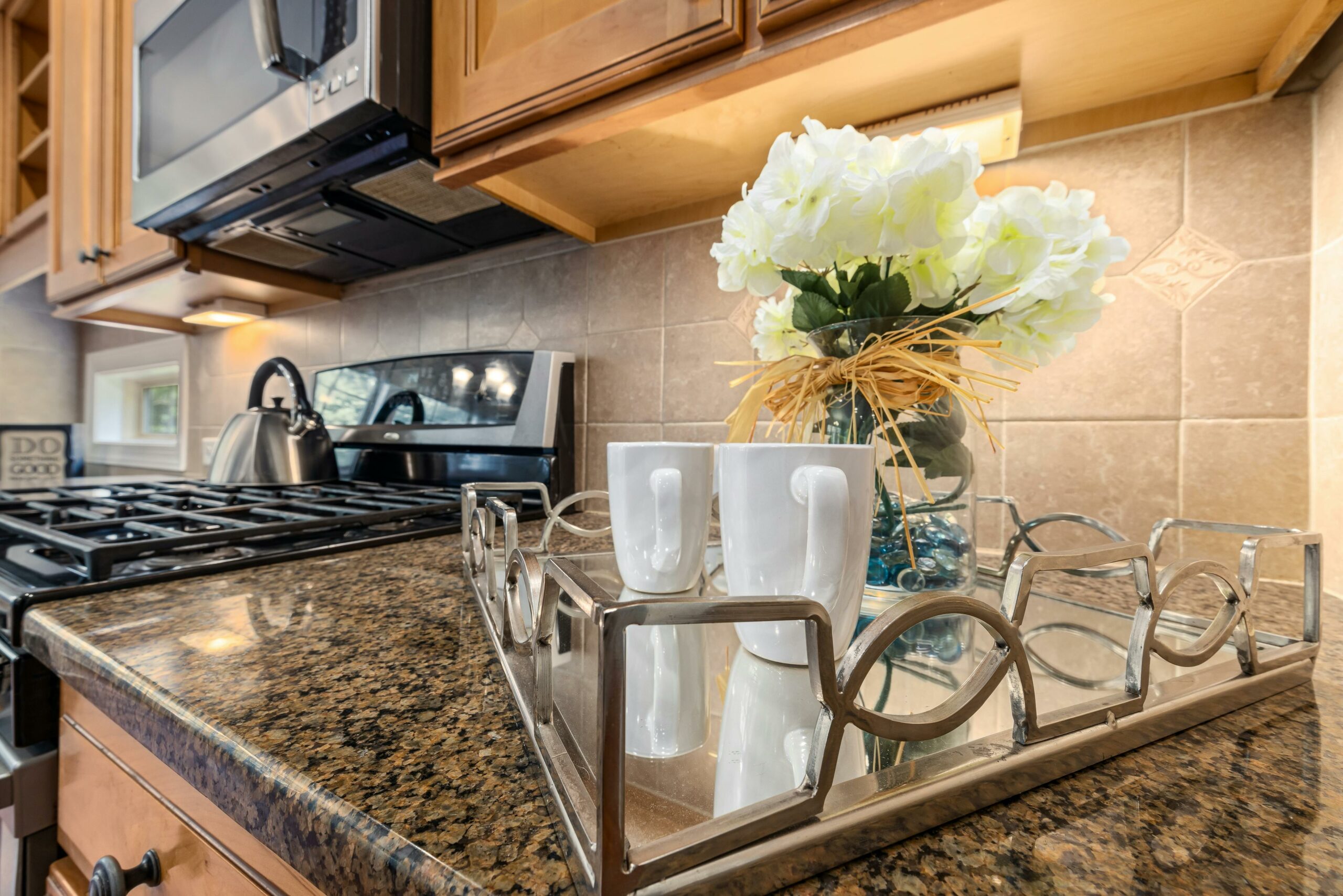Concrete countertops are the perfect blend of versatility, durability, and aesthetic appeal for homeowners looking to add a touch of modernity to their household. Providing an excellent alternative to traditional kitchen and bathroom surfaces, these customizable countertops have steadily risen in popularity due to their flexible design options and unique aesthetic appeal.
Be it rustic charm or industrial chic, concrete countertops fit seamlessly into any design scheme. Through the following sections, we aim to guide you through the ins and outs of these innovative surfaces, starting with the basic principles involved in understanding concrete countertops. We will explore their possible role in designing stylish kitchens, how durability factors into care requirements, and even delve into the hands-on world of DIY installation.
Furthermore, we will discuss integral color options, pricing aspects, and the eco-friendly benefits of concrete countertops. We will then dive into unleashing your creativity by creating custom designs and debunk some common myths surrounding concrete countertops. Finally, an in-depth comparison with other materials will offer comprehensive insights to help make an informed choice for your home. Delve in to discover how concrete countertops could redefine your living spaces.
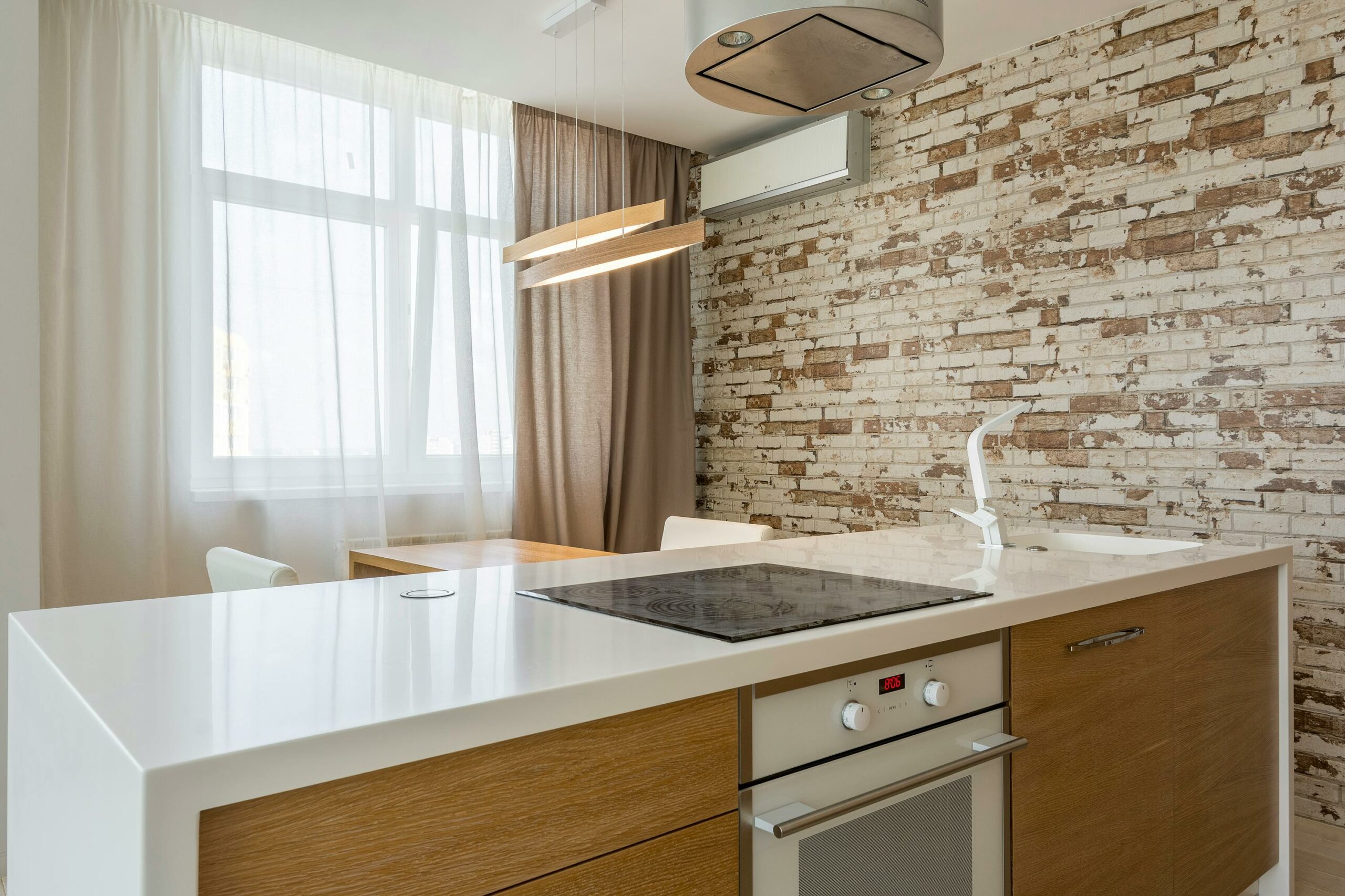
Understanding the Basics
Concrete countertops have become increasingly popular in modern kitchen designs. They offer a unique and stylish alternative to traditional countertop materials like granite or marble. Understanding the basics of concrete countertops can help you make an informed decision about whether they are the right choice for your kitchen.
What are Concrete Countertops?
Are made by mixing cement, sand, and other aggregates with water to create a thick, paste-like substance. This mixture is then poured into a mold and left to cure and harden. Once hardened, the concrete is polished to achieve a smooth and glossy finish.
Benefits
-
- Durability: Are incredibly durable and can withstand heavy daily use without scratching or chipping.
-
- Customization: Offer endless design possibilities. They can be customized with integral colors, decorative aggregates, and even embedded objects.
-
- Heat Resistance: Are highly resistant to heat, making them ideal for kitchens where hot pots and pans are frequently used.
-
- Eco-Friendly: Concrete is a sustainable and environmentally friendly material choice for countertops. It can be made with recycled materials and doesn’t emit harmful chemicals.
Installation and Maintenance
Installing concrete countertops requires careful planning and preparation. It is recommended to hire a professional for the installation process to ensure a proper fit and finish. Once installed, concrete countertops require regular sealing to maintain their appearance and protect against stains and water damage.
Cost Considerations
Concrete countertops can vary significantly in price depending on factors such as size, design complexity, and location. It is essential to budget accordingly and consider the long-term value and durability of concrete countertops when comparing costs to other materials.
Conclusion
Understanding the basics of concrete countertops can help you determine if they are the right choice for your kitchen. With their durability, customization options, and eco-friendly benefits, concrete countertops offer a unique and stylish option for homeowners looking to create a modern and functional kitchen space.
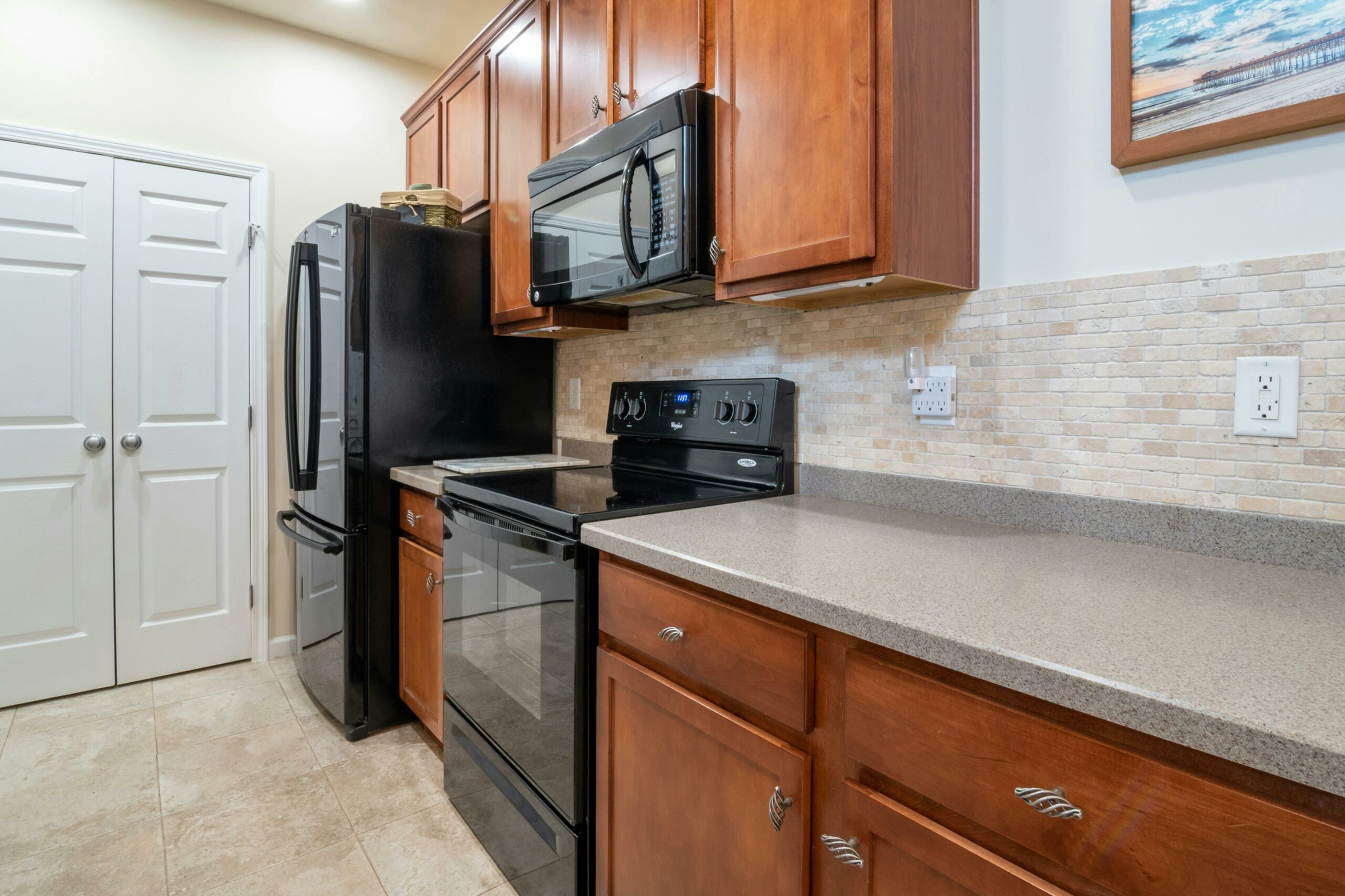
Designing Stylish Kitchens
When it comes to kitchen design, concrete countertops are becoming an increasingly popular choice. Not only do they offer a unique and modern aesthetic, but they also provide durability and versatility that other materials can’t match.
Choosing the Right Style
One of the great things about concrete countertops is that they can be customized to fit any design style. Whether you prefer a sleek and minimalist look or a more rustic and industrial vibe, concrete can be molded and shaped to meet your vision. You can choose from a variety of finishes, such as polished, honed, or textured, to achieve the desired look.
Adding Color and Texture
Concrete countertops offer endless possibilities when it comes to color and texture. You can opt for a natural gray hue or add integral color pigments to create a bold statement. Additionally, you can incorporate aggregates like crushed glass, shells, or even recycled materials to add texture and visual interest to your countertops.
Customizing with Edge Profiles
The edge profile of your concrete countertops can make a big impact on the overall design. From simple and straight edges to more elaborate and decorative profiles, there are numerous options to choose from. You can even create a custom edge profile to add a unique touch to your kitchen.
Pairing with Other Materials
Concrete countertops can be easily paired with other materials to create a cohesive and stylish kitchen design. For example, you can combine concrete countertops with wooden cabinetry for a warm and inviting look. Or, you can incorporate stainless steel appliances and fixtures for a sleek and modern aesthetic.
Maintaining and Caring
While concrete countertops are durable and long-lasting, they do require regular maintenance to keep them looking their best. It’s important to clean up spills promptly and avoid using abrasive cleaners that can damage the surface. Additionally, sealing the countertops periodically will help protect them from stains and scratches.
With their versatility, durability, and unique aesthetic, concrete countertops are a great choice for designing stylish kitchens. Whether you prefer a modern or traditional look, concrete can be customized to fit your design vision and create a stunning focal point in your kitchen.
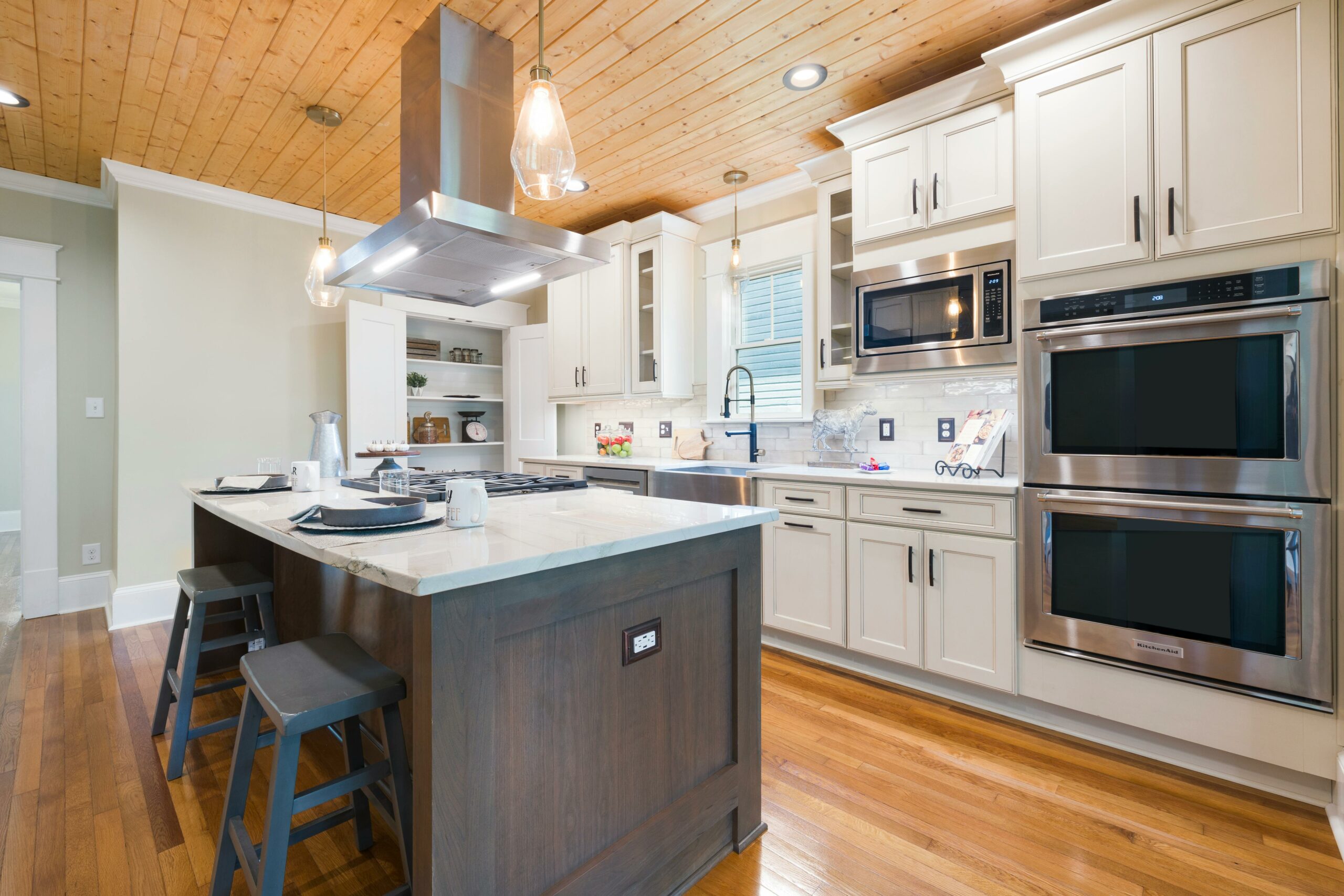
Durability and Care
Concrete countertops are known for their durability and longevity. With proper care and maintenance, they can last for many years without losing their beauty and functionality. Here are some tips on how to ensure the durability and longevity of your concrete countertops:
1. Sealing
One of the most important steps in caring for concrete countertops is sealing them properly. A high-quality sealer will protect the surface from stains, scratches, and moisture. It is recommended to reseal the countertops every 1-3 years, depending on the usage and wear.
2. Cleaning
Regular cleaning is essential to maintain the appearance and durability of concrete countertops. Use a mild, non-abrasive cleanser and a soft cloth or sponge to clean the surface. Avoid using harsh chemicals or abrasive scrubbers, as they can damage the sealer and the concrete.
3. Avoid Heat and Impact
While concrete countertops are heat resistant, it is still advisable to use trivets or hot pads to protect the surface from direct heat. Placing hot pans or pots directly on the countertop can cause thermal shock and potentially lead to cracks or discoloration. Similarly, avoid dropping heavy objects on the countertop to prevent chipping or cracking.
4. Preventing Stains
Although concrete countertops are sealed, it is still important to wipe up spills promptly to prevent staining. Certain substances like wine, coffee, and acidic liquids can penetrate the sealer and leave permanent marks. Use cutting boards and coasters to protect the surface from potential stains.
5. Regular Maintenance
In addition to regular cleaning, it is recommended to perform routine maintenance on your concrete countertops. This includes inspecting the sealer for any signs of wear or damage and reapplying as necessary. Also, inspect the surface for any cracks or chips and address them promptly to prevent further damage.
By following these care and maintenance tips, you can ensure that your concrete countertops remain durable, beautiful, and functional for years to come.
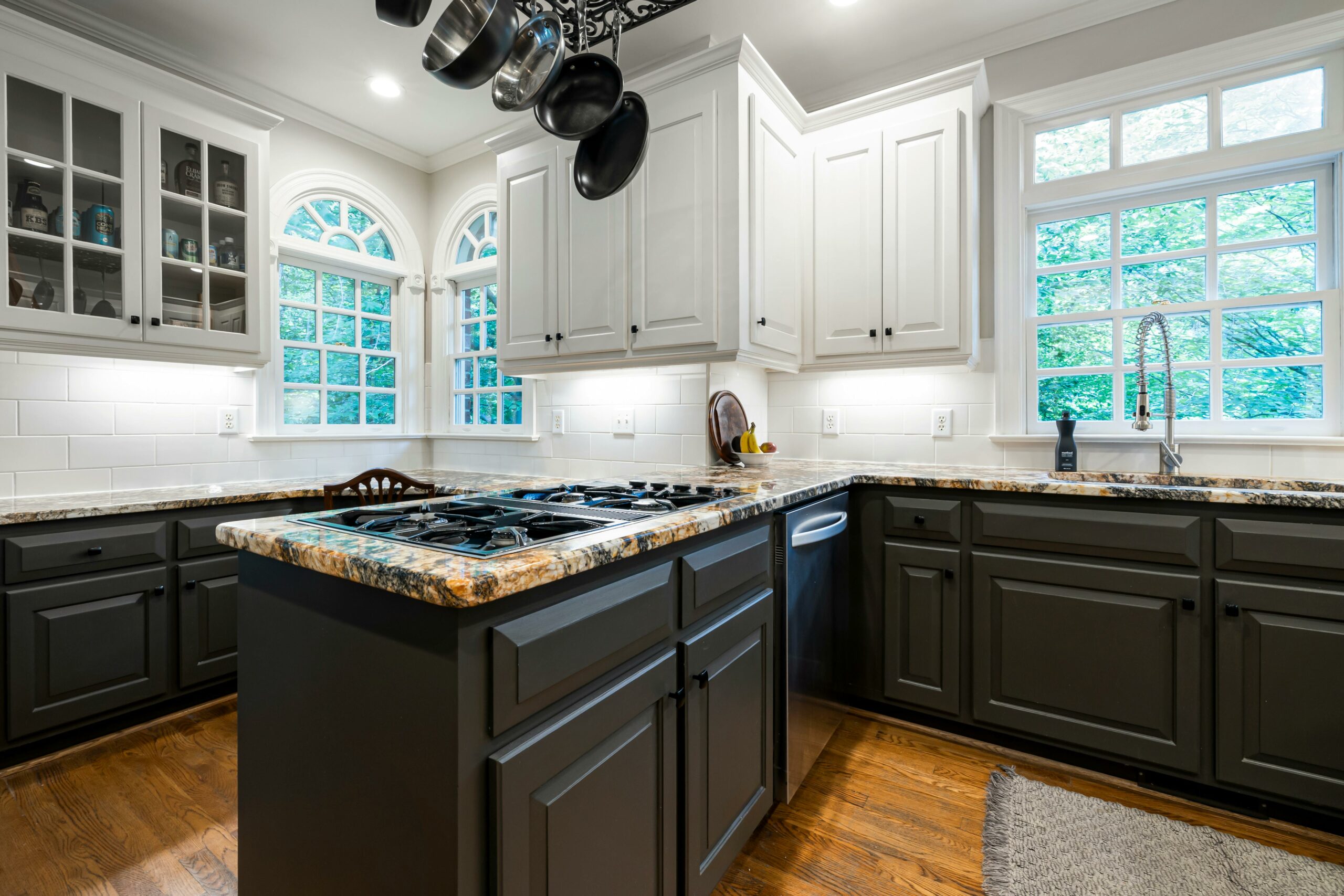
DIY: Installing your Own Concrete Countertops
Installing your own concrete countertops can be a rewarding and cost-effective way to upgrade your kitchen or bathroom. With the right tools and materials, you can create custom countertops that are both durable and stylish.
Step 1: Planning and Preparation
Before you begin the installation process, it’s important to carefully plan and prepare for the project. Measure your existing countertops and create a detailed plan for the new ones. Consider factors such as the desired thickness, shape, and any additional features you want to incorporate, such as sinks or built-in cutting boards.
Step 2: Gathering Materials and Tools
Once you have your plan in place, gather all the necessary materials and tools. This may include concrete mix, reinforcing materials, molds, a trowel, a sander, sealer, and any additional accessories you need for your specific design.
Step 3: Building the Forms
The next step is to build the forms for your countertops. This involves creating a mold that will hold the wet concrete in place until it dries and hardens. You can use plywood, melamine, or another suitable material to construct the forms. Make sure they are well-sealed to prevent any leaks or seepage.
Step 4: Mixing and Pouring the Concrete
Once your forms are ready, it’s time to mix and pour the concrete. Follow the instructions on the concrete mix packaging to ensure the correct ratio of water to mix. Use a mixer or a wheelbarrow and a shovel to thoroughly mix the concrete. Then, carefully pour it into the forms, making sure to distribute it evenly and eliminate any air bubbles.
Step 5: Finishing and Curing
After pouring the concrete, use a trowel to smooth and level the surface. You can also add decorative elements or textures at this stage, such as aggregates or patterns. Allow the concrete to cure for the recommended amount of time, typically a few days, before removing the forms.
Step 6: Sanding and Sealing
Once the concrete has cured, use a sander to achieve the desired smoothness and finish. Start with a coarse grit sandpaper and gradually move to finer grits for a polished result. After sanding, thoroughly clean the countertops and apply a sealer to protect the surface from stains and moisture.
Step 7: Installation
The final step is to install the finished concrete countertops in your kitchen or bathroom. Carefully place them on top of your cabinets or support structure and secure them in place. Connect any necessary plumbing fixtures and enjoy your new custom concrete countertops.
By following these steps and taking your time, you can successfully install your own concrete countertops and achieve a beautiful and functional addition to your home.

Integral Color Options
When it comes to concrete countertops, one of the key design elements to consider is the color. With integral color options, you can achieve a wide range of hues and shades to complement your kitchen or bathroom decor. Integral color refers to the process of adding color directly to the concrete mix, resulting in a consistent and long-lasting color throughout the countertop.
Benefits of Integral Color
Using integral color for your concrete countertops offers several advantages:
-
- Consistency: With integral color, the color is evenly distributed throughout the countertop, ensuring a consistent appearance.
-
- Durability: The color is not just on the surface, but throughout the entire countertop, making it resistant to fading, chipping, and wear.
-
- Customization: Integral color options come in a wide range of hues, allowing you to match or complement your existing kitchen or bathroom design.
-
- Longevity: The color of integral concrete countertops is fade-resistant, meaning it will maintain its vibrant appearance for years to come.
Popular Integral Color Options
There are numerous integral color options available for concrete countertops. Here are some popular choices:
-
- Earthy Tones: Shades of brown, tan, and beige can create a warm and natural look.
-
- Gray and Charcoal: These colors offer a sleek and modern aesthetic.
-
- Blues and Greens: For a pop of color, consider shades of blue or green to add vibrancy to your space.
-
- Neutral Grays: A classic and timeless choice, neutral grays can complement any kitchen or bathroom style.
-
- Bold Colors: If you’re looking to make a statement, bold colors like red, orange, or yellow can add a unique and eye-catching element to your countertops.
When selecting an integral color, it’s important to consider the overall design and style of your space. Take into account the existing color palette and choose a color that will enhance the overall aesthetic.
With integral color options, you can transform your concrete countertops into a focal point of your kitchen or bathroom. Whether you prefer a subtle and neutral look or a bold and vibrant statement, integral color allows you to achieve the perfect color for your countertops.

Pricing Guide: Budgeting
When it comes to budgeting for concrete countertops, there are several factors to consider. Concrete countertops offer a unique and stylish option for your kitchen or bathroom, but the cost can vary depending on various factors.
1. Size and Complexity
The size and complexity of your concrete countertops will have a significant impact on the overall cost. Larger countertops or those with intricate designs or shapes will require more materials and labor, resulting in a higher price tag.
2. Material and Finishing Options
The type of concrete mix and finishing options you choose will also affect the cost. Different materials, such as recycled glass or decorative aggregates, can add to the overall expense. Finishing options like polishing or sealing may also increase the price.
3. Customization and Additional Features
If you want to add custom features or unique designs to your concrete countertops, it will likely increase the cost. Customization options like embedded objects, integral sinks, or built-in cutting boards will require additional labor and materials.
4. Installation and Labor Costs
The cost of installation and labor will vary depending on the complexity of the project and the experience of the contractor. It’s essential to get quotes from multiple contractors and compare their prices and expertise before making a decision.
5. Location and Market Factors
The location of your project and the local market conditions can also impact the pricing. In areas with high demand or limited availability of concrete countertop specialists, the prices may be higher compared to areas with more competition.
6. Maintenance and Longevity
While concrete countertops are durable and long-lasting, they may require regular maintenance to keep them looking their best. Consider the cost of sealing or resealing the countertops periodically as part of your budgeting process.
By considering these factors and getting quotes from reputable contractors, you can create a budget for your concrete countertops that aligns with your needs and preferences. Remember to balance cost with quality to ensure you get the best value for your investment.

Eco-Friendly Benefits
Concrete countertops not only offer durability and style, but they are also an eco-friendly choice for your kitchen or bathroom. Here are some of the key benefits of choosing concrete countertops:
1. Sustainable Material
Concrete is made from natural materials such as cement, water, and aggregates like sand and gravel. These materials are readily available and can be sourced locally, reducing the carbon footprint associated with transportation.
2. Long Lifespan
Are known for their durability and longevity. With proper care and maintenance, they can last for decades, reducing the need for frequent replacements and minimizing waste.
3. Reduced Energy Consumption
Concrete has excellent thermal mass properties, which means it can absorb and store heat. This can help regulate the temperature in your kitchen, reducing the need for heating or cooling appliances and saving energy.
4. Low VOC Emissions
Volatile Organic Compounds (VOCs) are chemicals that can be released from certain materials and contribute to indoor air pollution. Concrete countertops have low VOC emissions, making them a healthier choice for your home.
5. Recyclable and Reusable
If you ever decide to replace your concrete countertops, they can be recycled and used as aggregate in new concrete or other construction projects. This reduces waste and promotes a circular economy.
6. Customizable Designs
Offer endless design possibilities, allowing you to create unique and personalized surfaces. By choosing concrete, you can avoid the environmental impact associated with mining and processing natural stones.
7. Minimal Chemical Usage
Compared to other countertop materials, concrete requires minimal chemical usage during installation and maintenance. This reduces the release of harmful substances into the environment and promotes a greener lifestyle.
By choosing eco-friendly concrete countertops, you can not only enhance the beauty of your space but also contribute to a more sustainable and environmentally conscious lifestyle.
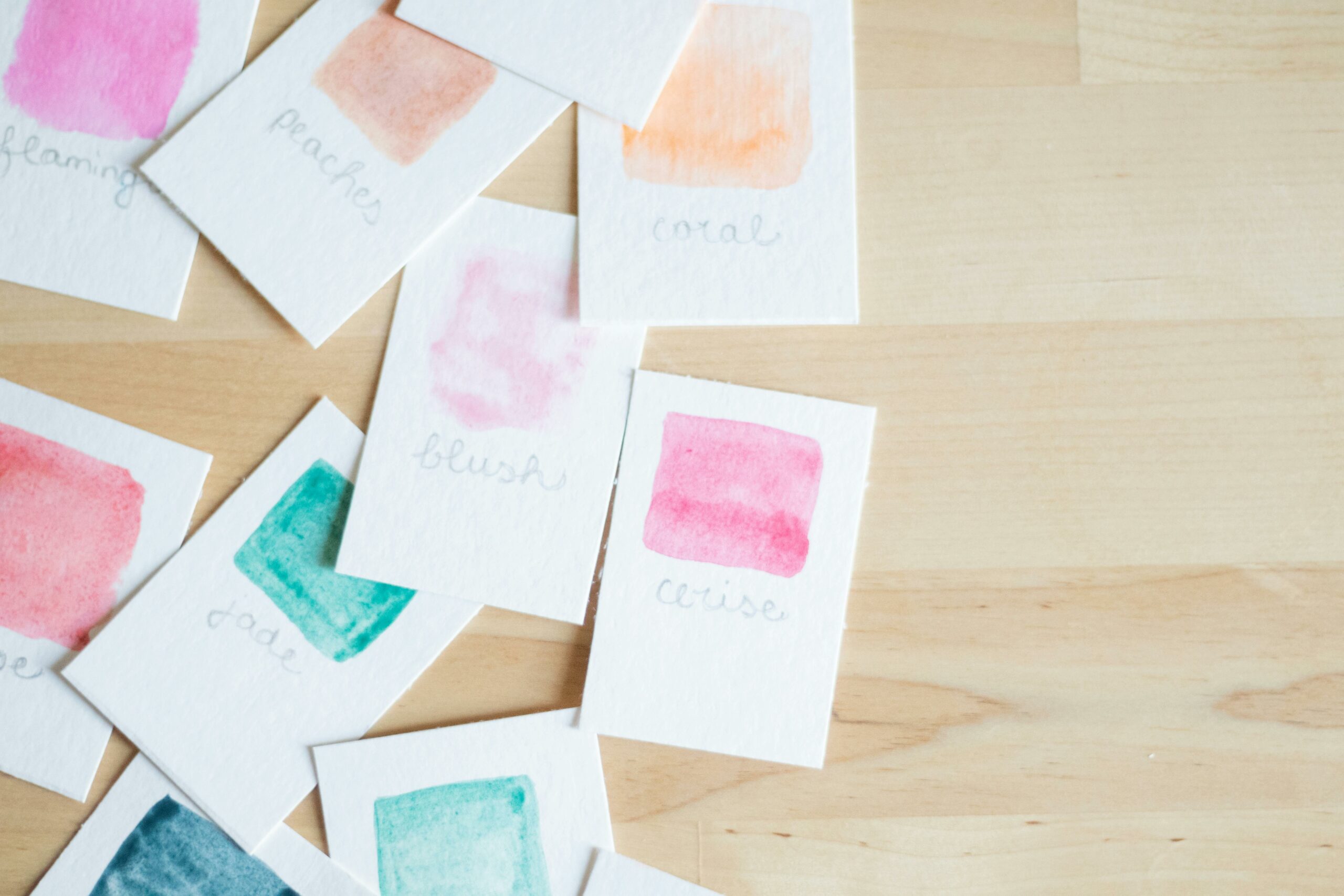
Creativity Unleashed: Custom Designs
When it comes to concrete countertops, the possibilities for custom designs are truly endless. Concrete is a versatile material that can be molded, shaped, and colored to create unique and personalized countertop designs. Whether you’re looking for a sleek and modern look or a more rustic and natural aesthetic, concrete countertops can be customized to suit your style and taste.
One of the key advantages is their ability to be customized to fit any space. Unlike pre-fabricated countertops, which come in standard sizes and shapes, concrete countertops can be poured and formed to fit your specific kitchen layout. This means that you can create countertops that seamlessly integrate with your existing cabinetry and appliances, giving your kitchen a cohesive and polished look.
Another way to unleash your creativity with concrete countertops is through the use of color. Concrete countertops can be pigmented with integral color options, allowing you to choose from a wide range of hues to match your kitchen decor. From bold and vibrant colors to subtle and earthy tones, the choice is yours. You can even experiment with different color combinations or create patterns and designs using multiple colors.
In addition to color, texture is another element that can be customized in concrete countertops. With the use of molds and stamps, you can create unique textures and patterns on the surface of your countertops. Whether you want a smooth and polished finish or a more rugged and textured look, the possibilities are endless. You can even incorporate decorative elements, such as embedded stones or glass, to add a touch of elegance and sophistication to your countertops.
Custom designs also extend to the edge profiles. While traditional countertops often have standard edge profiles, concrete countertops can be formed with custom edge details. From simple and clean lines to intricate and decorative edges, you can choose an edge profile that complements your overall design aesthetic.
When it comes to creativity, the sky’s the limit with concrete countertops. With the ability to customize every aspect of the design, you can truly unleash your imagination and create a one-of-a-kind countertop that reflects your personal style. Whether you want a bold and dramatic statement piece or a subtle and understated design, concrete countertops offer endless possibilities for customization.
In conclusion, custom designs in concrete countertops allow you to unleash your creativity and create a unique and personalized kitchen space. From choosing the color and texture to customizing the edge profiles, concrete countertops offer endless possibilities for customization. So, let your imagination run wild and create a countertop that is as unique as you are.

Common Myths Debunked
Concrete countertops have gained popularity in recent years due to their durability, versatility, and unique aesthetic appeal. However, there are still some common myths surrounding concrete countertops that need to be debunked. Let’s take a closer look at these misconceptions and separate fact from fiction.
Myth 1: Are prone to cracking
Fact: While it is true that concrete can develop hairline cracks over time, proper installation and maintenance can significantly minimize the risk. Reinforcing the concrete with steel or fiberglass mesh, using proper curing techniques, and sealing the countertops regularly can help prevent cracking and ensure their longevity.
Myth 2: Are difficult to maintain
Fact: Contrary to popular belief, concrete countertops are relatively easy to maintain. They require regular sealing to protect against stains and water damage, but this is a simple process that can be done with a sealant specifically designed for concrete surfaces. Additionally, using cutting boards and trivets can help prevent scratches and heat damage.
Myth 3: Are limited in design options
Fact: Concrete countertops offer endless design possibilities. They can be customized with integral color pigments, aggregates, and decorative elements such as embedded glass, stones, or shells. The concrete can also be polished, textured, or stamped to create unique patterns and textures. With the right techniques and creativity, concrete countertops can be tailored to suit any style or design preference.
Myth 4: Are not sanitary
Fact: Concrete countertops, when properly sealed, are highly hygienic and resistant to bacteria growth. The sealant creates a protective barrier that prevents liquids, stains, and bacteria from penetrating the surface. Regular cleaning with mild soap and water is all that is needed to keep concrete countertops clean and sanitary.
Myth 5: Are expensive
Fact: While concrete countertops can be more expensive than some other materials, such as laminate or tile, they are often more affordable than high-end options like granite or quartz. The cost of concrete countertops will depend on factors such as the complexity of the design, the size of the countertop, and the type of finish. However, considering their durability and longevity, concrete countertops can be a cost-effective choice in the long run.
By debunking these common myths, it becomes clear that concrete countertops are a viable and attractive option for homeowners looking to add a touch of uniqueness and style to their kitchen or bathroom. With proper installation, maintenance, and care, concrete countertops can provide years of beauty and functionality.

Comparison: Concrete Countertops vs Other Materials
Concrete countertops have gained popularity in recent years due to their unique aesthetic appeal and durability. However, it’s essential to consider how they compare to other materials commonly used for countertops. In this section, we will explore the advantages and disadvantages of concrete countertops compared to other popular options.
Granite Countertops
Granite countertops have long been a popular choice for homeowners due to their natural beauty and durability. They offer a wide range of colors and patterns, making them versatile for various kitchen designs. However, granite countertops can be quite expensive, and they require regular sealing to prevent staining and damage.
Quartz Countertops
Quartz countertops have gained significant popularity in recent years due to their low maintenance and durability. Unlike natural stone countertops, quartz countertops are engineered and can be customized to fit specific design preferences. They are non-porous, making them resistant to stains and bacteria. However, quartz countertops can be more expensive than concrete and require professional installation.
Marble Countertops
Marble countertops are known for their elegance and timeless beauty. They add a luxurious touch to any kitchen design. However, marble is a porous material and can be prone to staining and etching. It requires regular sealing and careful maintenance to preserve its appearance. Additionally, marble countertops can be quite expensive compared to concrete.
Butcher Block Countertops
Butcher block countertops offer a warm and natural look to any kitchen. They are made from wood, typically maple or oak, and provide a durable surface for food preparation. However, wood countertops require regular sealing and maintenance to prevent water damage and staining. They can also be prone to scratches and dents over time.
Laminate Countertops
Laminate countertops are a budget-friendly option that offers a wide range of colors and patterns. They are easy to clean and maintain, making them a popular choice for many homeowners. However, laminate countertops are not as durable as other materials and can be prone to scratches, burns, and chipping. They may also not offer the same level of aesthetic appeal as concrete or natural stone countertops.
Conclusion
When comparing concrete countertops to other materials, it’s important to consider factors such as cost, durability, maintenance requirements, and aesthetic appeal. Concrete countertops offer a unique and customizable option, but they may require more maintenance compared to materials like quartz or laminate. Ultimately, the choice between concrete and other materials will depend on individual preferences, budget, and the desired look and functionality of the kitchen.

